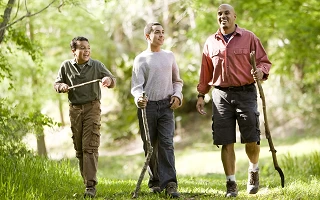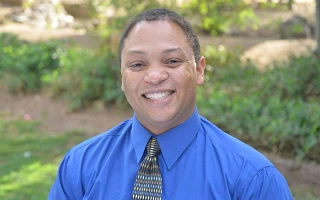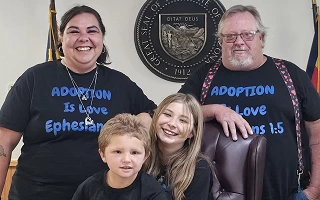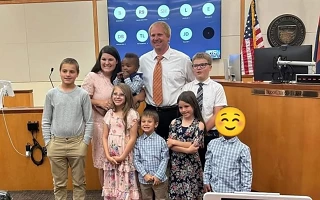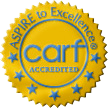With nearly 19,000 children in the state foster care system and fewer than 4,500 licensed foster homes, one local charity wants to remind people that these vulnerable children are in desperate need of a safe and loving family—and helping these children may be easier than you think.
With nearly 19,000 children in the state foster care system and fewer than 4,500 licensed foster homes, Catholic Charities wants to remind people that these vulnerable children are in desperate need of a safe and loving family—and helping these children may be easier than you think.
Foster Care Licensing
“I think most people are intimidated by the thought of becoming foster parents,” says Veronica Soto, program manager of Catholic Charities Foster Care and Adoption, “but it’s not nearly as hard as you’d think to get licensed, and the rewards are so great.” Soto points out that anyone interested in becoming a foster parent can be licensed in as little as three months and the state is very flexible about who may be licensed. “Foster parents may own a home or rent an apartment. They may be married or single. They can be stay-at-home parents or work and if they work, they may get assistance for day care."
Elizabeth Van Wie, along with her husband David, are licensed foster parents for the past 11 years, but they take their foster parent responsibilities a step further and meet with prospective foster parents whom have questions about the licensing and fostering process. “We tell prospective parents that this has been a beautiful thing for our family and it really is something we do together as a family. When we are between placements, our children are constantly asking, ‘When will we get another brother or sister?’”
Licensing Agencies Make it Easy
Van Wie assures prospective foster families that not only do licensing agencies make it as easy as possible to complete their process, but each family can pick an age preference for the children entering their home. “We typically take children ages 5 and under because in Arizona, the greatest need is for children ages 0 to 7,” Van Wie explains. The reason for the greater need in this age group is due to neglect—these children might not be receiving adequate care and are unable to care for themselves.
Van Wie explains that the most prominent fear that she hears from prospective foster parents is associated with attachment. Parents worry about how they will handle a child moving back home with their biological families. “The role of a foster parent is similar to that of a teacher. The foster parent must teach the child, treat them fairly, show the child love, engage with them, comfort the child when they are sad, and cheer for their achievements. We give 100 percent to the child,” explains Van Wie. “But when it’s time for a child to return home, just like that teacher, who’s invested so much time, we remember that it’s our role to let the child go. It’s not without some sadness, but it is also a beautiful thing to see a child and mother reunited.”
Foster Care Can Lead to Adoption
Soto reminds us that there are many stories of foster children who do not return home, but instead are adopted by their foster families. “If a child cannot return to his parent or another family member, then the Department of Child Safety will look to the foster parents first to see if they want to adopt,” Soto explains. “Basically, the foster parents have the first right of refusal regarding adoption.”
Van Wie also has experience in adopting when she was presented with the option to adopt their foster son, who had been with her family for two years. “It was very exciting and we were fortunate to adopt on National Adoption Day, so it seemed as though the world was celebrating with us,” Van Wie shared. “Now, we have a blended family of biological, adopted and foster children—and we love it. For us, it’s just more fun, more laughs, and more love.”
Foster Care is Rewarding
Van Wie concedes that foster parenting is very rewarding, but is not without its challenges. Challenges can vary on a case-by-case or child-to-child basis, but “all in all, the good far outweighs the challenges,” Van Wie says. “You learn to set boundaries and make choices that work for your family. It is so rewarding to see a child have her first Easter Egg Hunt or hang a stocking for Santa for the first time…that makes it all worth it.”
The month of May is Foster Care Awareness Month. Catholic Charities is hosting a free ‘You Make Miracles Happen’ breakfast event on May 17, 2017, to honor Arizona’s most vulnerable and those that support them. Please visit CatholicCharitiesAZ.org/breakfast for more information and to register for the event. Couples or individuals interested in foster parenting should start by contacting Veronica Soto at Catholic Charities by emailing
{sh404sef_social_buttons}


